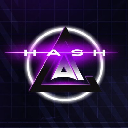-
 Bitcoin
Bitcoin $103,931.2662
-0.08% -
 Ethereum
Ethereum $2,515.2052
-1.38% -
 Tether USDt
Tether USDt $1.0000
0.02% -
 XRP
XRP $2.3918
-0.67% -
 BNB
BNB $654.1944
-1.38% -
 Solana
Solana $174.0138
-1.29% -
 USDC
USDC $0.9999
0.02% -
 Dogecoin
Dogecoin $0.2367
-1.31% -
 Cardano
Cardano $0.8164
-0.40% -
 TRON
TRON $0.2671
0.47% -
 Sui
Sui $4.0483
0.42% -
 Chainlink
Chainlink $17.1006
0.54% -
 Avalanche
Avalanche $25.0409
-1.62% -
 Stellar
Stellar $0.3117
-0.92% -
 Shiba Inu
Shiba Inu $0.0...01621
-1.31% -
 Pi
Pi $1.2479
33.76% -
 Hedera
Hedera $0.2079
-3.03% -
 Toncoin
Toncoin $3.4396
-1.82% -
 Hyperliquid
Hyperliquid $24.5292
-3.54% -
 Bitcoin Cash
Bitcoin Cash $409.0124
-2.08% -
 Polkadot
Polkadot $5.1305
-0.51% -
 UNUS SED LEO
UNUS SED LEO $8.3933
1.01% -
 Litecoin
Litecoin $100.6636
-3.99% -
 Monero
Monero $333.5430
2.54% -
 Pepe
Pepe $0.0...01434
9.70% -
 Bitget Token
Bitget Token $4.8630
-1.08% -
 Dai
Dai $0.9998
0.00% -
 Ethena USDe
Ethena USDe $1.0001
0.00% -
 Uniswap
Uniswap $6.9994
-5.01% -
 Bittensor
Bittensor $474.4253
3.93%
does tron have a future
TRON's strong team, scalability, large community, and strategic partnerships position it favorably for future growth, despite challenges such as centralization concerns and competition.
Nov 06, 2024 at 11:20 am

Does Tron Have a Future?
Tron is a blockchain platform that aims to create a decentralized, high-throughput network for smart contracts and decentralized applications (dApps). It was founded in 2017 by Justin Sun, a former employee of Ripple.
Tron is designed to be a platform for the development and deployment of dApps that can run on a variety of devices, including smartphones, tablets, and computers. It features a multi-layered architecture that enables it to handle a high volume of transactions per second.
Tron has its own native token, called TRX. TRX can be used to pay for transactions on the Tron network, as well as to stake in order to participate in the network's validation process. TRX is also used to purchase Tron's native energy token, which is used to power dApps on the Tron network.
Tron has seen some success in recent years. Its mainnet was launched in 2018, and it has since gained a significant number of users and developers. Tron has also partnered with a number of major companies, including Samsung, BitTorrent, and Poloniex.
However, Tron has also faced some criticism. Some have argued that it is not as decentralized as it claims to be, and that it is controlled by a small number of core developers. Others have criticized Tron's marketing, which they believe has been misleading.
Despite these criticisms, Tron remains a popular platform for dApp development. It has a large and active community, and it is constantly being updated with new features. Tron is likely to continue to grow in popularity in the future, as more developers and users adopt it.
Here are some of the reasons why Tron may have a future:
- Strong team: Tron has a team of experienced developers and advisors, including Justin Sun, who has a proven track record in the blockchain industry.
- Scalability: Tron is designed to be a scalable platform, capable of handling a high volume of transactions per second.
- Large community: Tron has a large and active community of users and developers, which is essential for the growth of any blockchain platform.
- Partnerships: Tron has partnered with a number of major companies, including Samsung, BitTorrent, and Poloniex, which will help to increase its adoption.
Here are some of the challenges that Tron faces:
- Centralization: Some have argued that Tron is not as decentralized as it claims to be, and that it is controlled by a small number of core developers.
- Marketing: Tron has been criticized for its marketing, which some believe has been misleading.
- Competition: Tron faces stiff competition from other blockchain platforms, including Ethereum, EOS, and Cardano.
Overall, Tron has a number of strengths that position it well for future growth. However, it also faces some challenges that it will need to overcome in order to reach its full potential.
Disclaimer:info@kdj.com
The information provided is not trading advice. kdj.com does not assume any responsibility for any investments made based on the information provided in this article. Cryptocurrencies are highly volatile and it is highly recommended that you invest with caution after thorough research!
If you believe that the content used on this website infringes your copyright, please contact us immediately (info@kdj.com) and we will delete it promptly.
- Trump Signs Executive Order to Slash Prescription Drug Prices
- 2025-05-12 11:20:12
- Unstaked’s Presale Rockets to $4M in Record Time! Cronos ETP Rises & ETH Climbs Toward $2,500
- 2025-05-12 11:20:12
- title: Dan Tapiero Identifies the Catalyst That Could Fuel a Comeback for Bitcoin (BTC) and Crypto
- 2025-05-12 11:15:12
- Bitcoin Miner Sell-Off Cools Down — What Does It Mean for the Market?
- 2025-05-12 11:15:12
- How to Earn Passive Income with Bitcoin (BTC) Cloud Mining
- 2025-05-12 11:10:13
- Bitcoin SV (BSV) Investors Renew Their Antitrust Lawsuit Against Binance
- 2025-05-12 11:10:13
Related knowledge

What is Ethereum’s Slashing mechanism and how to punish malicious behavior?
Feb 20,2025 at 03:08am
Key PointsOverview of slashingDifferent types of slashing in EthereumIncentives and consequences of slashingIdentifying and reporting slashed validatorsOngoing discussions and potential improvementsEthereum's Slashing Mechanism: Punishing Malicious BehaviorEthereum's slashing mechanism is an essential tool for ensuring network security and punishing mal...

What is the verifier node of Ethereum and how to become a verifier?
Feb 19,2025 at 06:00pm
The Verifier Node of Ethereum: A Comprehensive GuideKey Points:What is a Verifier Node?How to Become a Verifier NodeResponsibilities and Rewards of a Verifier NodeMinimum Requirements for Becoming a Verifier NodePotential Difficulties in Running a Verifier Node1. What is a Verifier Node?A Verifier Node is an independent entity on the Ethereum network th...

What is Ethereum’s staking, and how to participate and earn money?
Feb 19,2025 at 04:37pm
Key Points:Understanding Ethereum's Staking MechanismSteps to Participate in StakingBenefits and Rewards of StakingSecurity and Risk ConsiderationsTechnical Requirements and Hardware OptionsPotential Challenges and Troubleshooting TipsFAQs on Ethereum StakingWhat is Ethereum's Staking?Proof-of-Stake (PoS) is a consensus mechanism used in blockchain netw...

What is Ethereum’s DAO (Decentralized Autonomous Organization) and how does it work?
Feb 20,2025 at 03:12am
Key PointsDefinition and Structure of a DAOGovernance and Decision-Making in DAOsBenefits and Use Cases of DAOsChallenges and Limitations of DAOsWhat is Ethereum's DAO (Decentralized Autonomous Organization) and How Does It Work?Definition and Structure of a DAOA Decentralized Autonomous Organization (DAO) is an innovative governance and management fram...

What is Ethereum's multi-signature wallet and how to improve security?
Feb 20,2025 at 02:18pm
Key Points:Understanding the Concept of a Multi-Signature WalletBenefits and Drawbacks of Multisig WalletsRequirements for Setting Up a Multisig WalletStep-by-Step Guide to Generating a Multisig WalletImplementing Strategies for Enhanced Security1. Understanding the Concept of a Multi-Signature WalletA multi-signature (multisig) wallet in the Ethereum e...

What is Ethereum's oracle and how to provide data for smart contracts?
Feb 21,2025 at 01:30am
Key Points:Understanding the concept of oracles in EthereumExploring different types of oraclesDetailed guide on how to provide data for smart contractsAddressing potential challenges and considerationsWhat is Ethereum's Oracle?Oracles are crucial components in the Ethereum ecosystem, enabling smart contracts to access real-world data and off-chain even...

What is Ethereum’s Slashing mechanism and how to punish malicious behavior?
Feb 20,2025 at 03:08am
Key PointsOverview of slashingDifferent types of slashing in EthereumIncentives and consequences of slashingIdentifying and reporting slashed validatorsOngoing discussions and potential improvementsEthereum's Slashing Mechanism: Punishing Malicious BehaviorEthereum's slashing mechanism is an essential tool for ensuring network security and punishing mal...

What is the verifier node of Ethereum and how to become a verifier?
Feb 19,2025 at 06:00pm
The Verifier Node of Ethereum: A Comprehensive GuideKey Points:What is a Verifier Node?How to Become a Verifier NodeResponsibilities and Rewards of a Verifier NodeMinimum Requirements for Becoming a Verifier NodePotential Difficulties in Running a Verifier Node1. What is a Verifier Node?A Verifier Node is an independent entity on the Ethereum network th...

What is Ethereum’s staking, and how to participate and earn money?
Feb 19,2025 at 04:37pm
Key Points:Understanding Ethereum's Staking MechanismSteps to Participate in StakingBenefits and Rewards of StakingSecurity and Risk ConsiderationsTechnical Requirements and Hardware OptionsPotential Challenges and Troubleshooting TipsFAQs on Ethereum StakingWhat is Ethereum's Staking?Proof-of-Stake (PoS) is a consensus mechanism used in blockchain netw...

What is Ethereum’s DAO (Decentralized Autonomous Organization) and how does it work?
Feb 20,2025 at 03:12am
Key PointsDefinition and Structure of a DAOGovernance and Decision-Making in DAOsBenefits and Use Cases of DAOsChallenges and Limitations of DAOsWhat is Ethereum's DAO (Decentralized Autonomous Organization) and How Does It Work?Definition and Structure of a DAOA Decentralized Autonomous Organization (DAO) is an innovative governance and management fram...

What is Ethereum's multi-signature wallet and how to improve security?
Feb 20,2025 at 02:18pm
Key Points:Understanding the Concept of a Multi-Signature WalletBenefits and Drawbacks of Multisig WalletsRequirements for Setting Up a Multisig WalletStep-by-Step Guide to Generating a Multisig WalletImplementing Strategies for Enhanced Security1. Understanding the Concept of a Multi-Signature WalletA multi-signature (multisig) wallet in the Ethereum e...

What is Ethereum's oracle and how to provide data for smart contracts?
Feb 21,2025 at 01:30am
Key Points:Understanding the concept of oracles in EthereumExploring different types of oraclesDetailed guide on how to provide data for smart contractsAddressing potential challenges and considerationsWhat is Ethereum's Oracle?Oracles are crucial components in the Ethereum ecosystem, enabling smart contracts to access real-world data and off-chain even...
See all articles





















































































